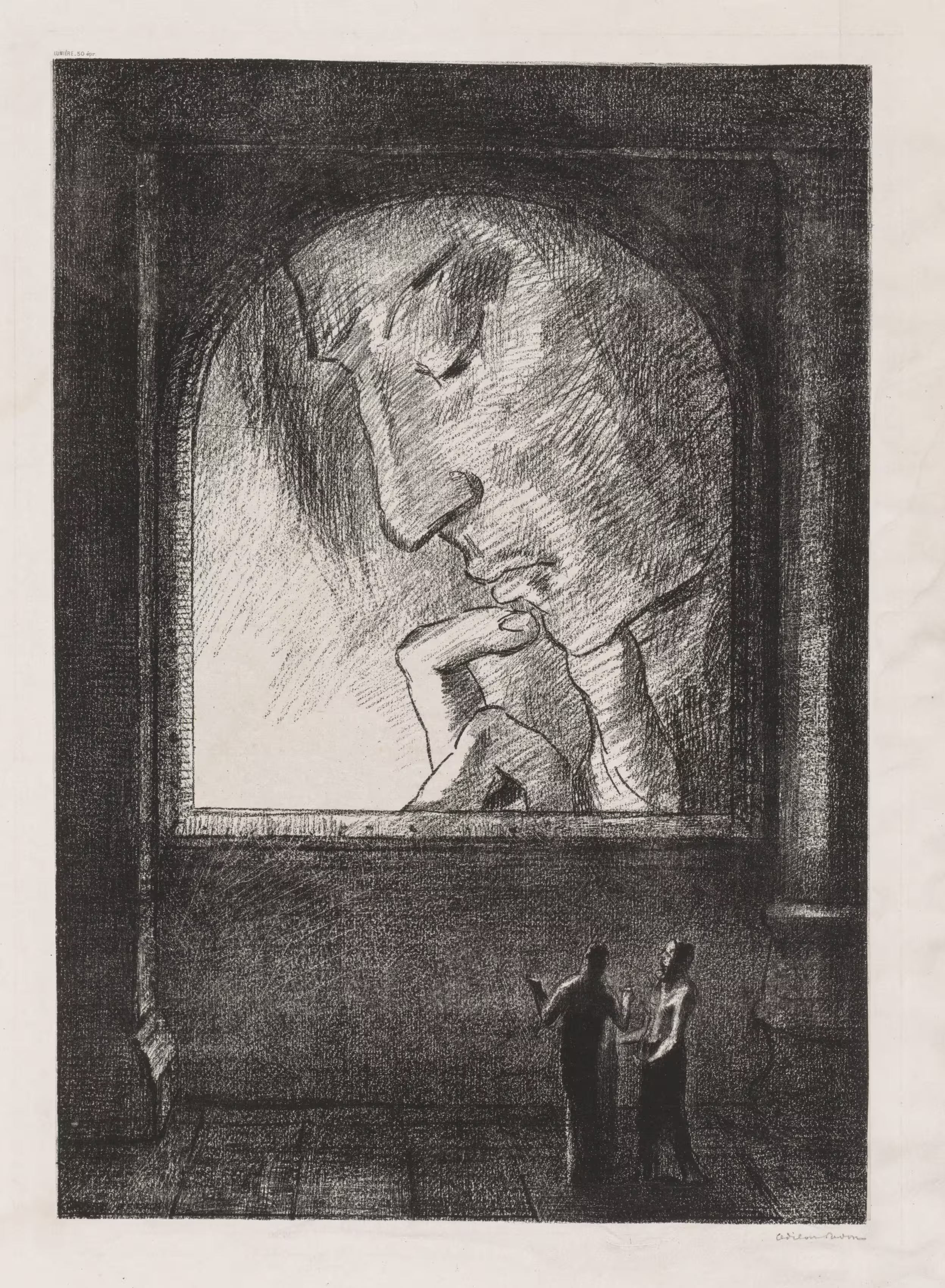“Father said clocks slay time. He said time is dead as long as it is being clicked off by little wheels; only when the clock stops does time come to life.”
A novel about the dynamics and vicissitudes of the Compson family, cast in 4 sections, each of which offers a unique perspective.
1
The opening chapter is narrated by Benjy, a mentally disabled 33 year old man with no capability for temporal differentiation. Hence the reader is confronted with a mosaic of memories which have been triggered by the events of Benjy’s present day, and are presented in linear sequence with current events. The progression of experiences portrayed is brilliantly orchestrated, making this section very engaging for the reader as they make efforts to reorient themselves when tossed between time periods. This shattered panorama is limned in imagery that is often childlike in its sensual immediacy, and this combined with Benjy’s camera-like objectivity regarding what he sees makes this chapter a very interesting window into the Compsons’ lives. What I found most special about this section was the emotional quality it has. Beautifully haunting.
2
The second chapter is narrated by Quentin, who, in contrast to Benjy, is a very intellectual person, and this section is filled with his musings on time and other topics. Contains a plethora of gorgeous passages which comprise the philosophical heart of the novel. Although Quentin is more grounded in the present than Benjy, this chapter contains many passages that use temporal fracturing to represent Quentin’s mental state, and these excursions were often more experimental and difficult to follow than Benjy’s. An incredible piece of writing; prismatic and profound.
3
The third chapter is narrated by the repugnant Jason, and runs as his pathetic invective against all that he feels is against him. Jason is both lazy and tyrannical, a deeply immoral man, but has invented a story for himself in which he is the honest hard worker who battles day in and day out to stay afloat on a sea of misfortune. An intricate exposure of self-deception, and a potent cautionary tale.
4
The final chapter is narrated in third person, centering on Dilsey, the ever-toiling housemaid and moral bastion of the book, and Jason, as he tries and fails to recover the money that his niece has rightfully stolen back from him. The voice marks a return to the virtuosity of Quentin’s chapter, and has an almost cosmic sensibility at times, which serves to broaden the reader’s view of the novel’s world after three extended visits to very specific perspectives. It is here that the novel’s pessimism is finally tempered with some hope (present in young Quentin’s triumph and in Dilsey’s religious experience), but the ending is by no means a happy one. An effective and multifold conclusion.

Banner image: “Light” by Odilon Redon, c. 1893 (CC 0).